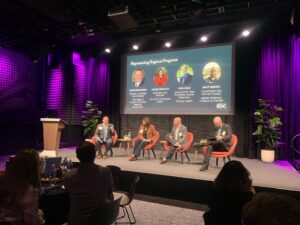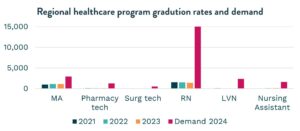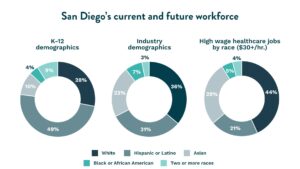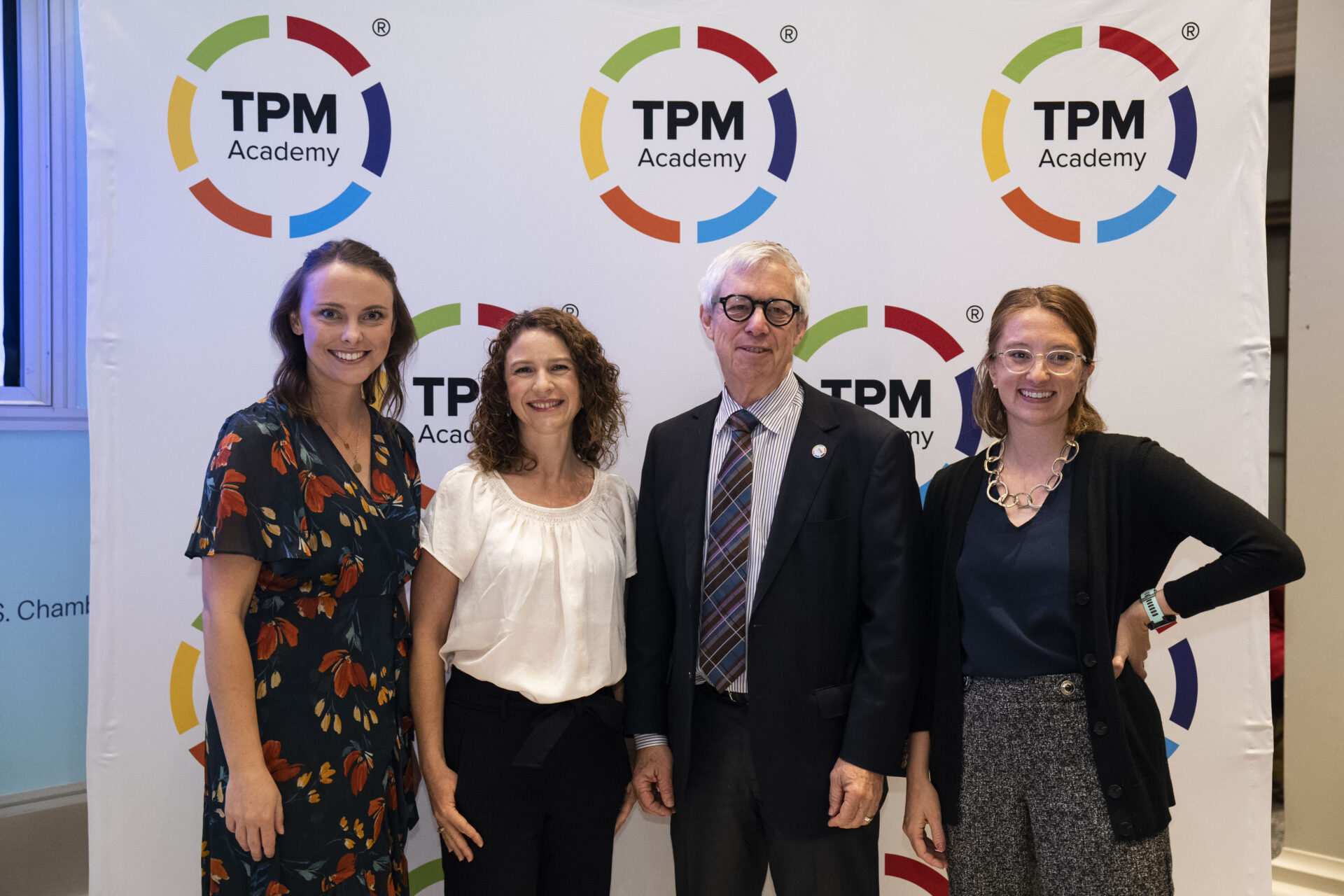Key takeaways from Advancing San Diego’s Verified Program Workshop on soft skills
In February 2025, 30 regional educators gathered for the latest installment of EDC’s Verified Program Workshop series. This quarter’s focus: embedding essential soft skills into higher education curricula. This workshop was designed to provide faculty at Verified Programs, education providers recognized for aligning their curricula with industry needs, with tangible strategies to help students develop soft skills critical for career success.
The significance of soft skills
Feedback from employers that hosted Advancing San Diego summer interns in 2024 highlighted that while students often excel technically, gaps remain in communication, adaptability, and professional workplace behavior. A recent Forbes report highlights that 80 percent of employees say soft skills are more important than ever, while a General Assembly survey found that nearly half of executives and about a third of employees cite soft skills as the reason entry-level employees are underprepared for jobs. Employers noted challenges in areas like navigating team dynamics, taking initiative, and responding to emails—reinforcing the necessary role of soft or interpersonal skills in career readiness. Yet, we often overlook how these skills are developed—through upbringing, home-life, career services, and work-based learning (WBL) opportunities.
While some may think soft skills should come naturally, many take for granted the access they had to environments that developed these skills. For students without such access, learning interpersonal skills isn’t as intuitive. Inclusion plays a major role in career preparation—without the right exposure at home, school, or work, mastering these skills can be much harder.
Now, with automation and AI reshaping our lives and our industries, soft skills like communication, adaptability, and problem-solving are more critical than ever. Simultaneously, automation and a digital-first world can mean fewer opportunities for young people to practice these skills in day-to-day life.
Four things we learned:

1. Simulating job environments can ease the classroom-to-workplace transition
To better prepare students for professional settings, classrooms should mirror workplace dynamics. Apprenti shared how its instructors integrate structured check-ins, competency checklists, and team-based projects that simulate real work environments before moving on to work-based learning. Team meetings, capstone projects, and realistic simulations—such as crisis management exercises and client presentations—offer hands-on experience in communication, teamwork, and professionalism. By treating the classroom like a job environment, students gain practical exposure to workplace expectations in a safe and controlled environment.
2. Communication and public speaking practice remain valuable
Strong verbal communication continues to be a high-demand skill. A workshop discussion led by National Foundation for Autism Research shared the value of Toastmasters-style speaking exercises, structured presentations, and improvised workplace conversations. With AI taking over routine tasks, the ability to articulate ideas effectively will determine career growth and leadership potential.
3. Teach workplace norms to bridge generational gaps
Many students lack exposure to professional etiquette, workplace expectations, and unspoken social norms. Whether this is due to changes during the COVID pandemic or the omnipresence of social media, being transparent and communicative about workplace norms can help ease the transition from student to employee. Presenting programs suggested making implicit rules explicit–responding professionally to emails, understanding office hierarchies, and navigating different workplace cultures–to ease students’ transition into the workforce.
4. Leverage alumni to engage employers in sharing real-world experience
One of the most effective ways to develop soft skills is through direct employer interaction. Industry-led capstone projects and structured mentorship programs help students develop professionalism in real-world settings. Alumni in particular can bridge the gap for students who lack personal industry connections, offering invaluable career insights and mentorship.
Next steps
Advancing San Diego’s Verified Program Workshop reinforced what many of us know to be true: Soft skills are just as critical as technical expertise in today’s workforce. By fostering adaptability, communication, and professionalism in the classroom, educators can equip students with the skills needed for long-term career success. As industry and academia continue to collaborate, structured employer partnerships, alumni engagement, and innovative teaching methods will help bridge skill gaps and shape the future workforce.
- Employers: Ensure students are prepared for entry-level jobs by participating in an employer working group.
- Educators: Ensure your curriculum aligns with employer needs by becoming a Verified Program.

Olivia Jones
Coordinator, Talent Initiatives









